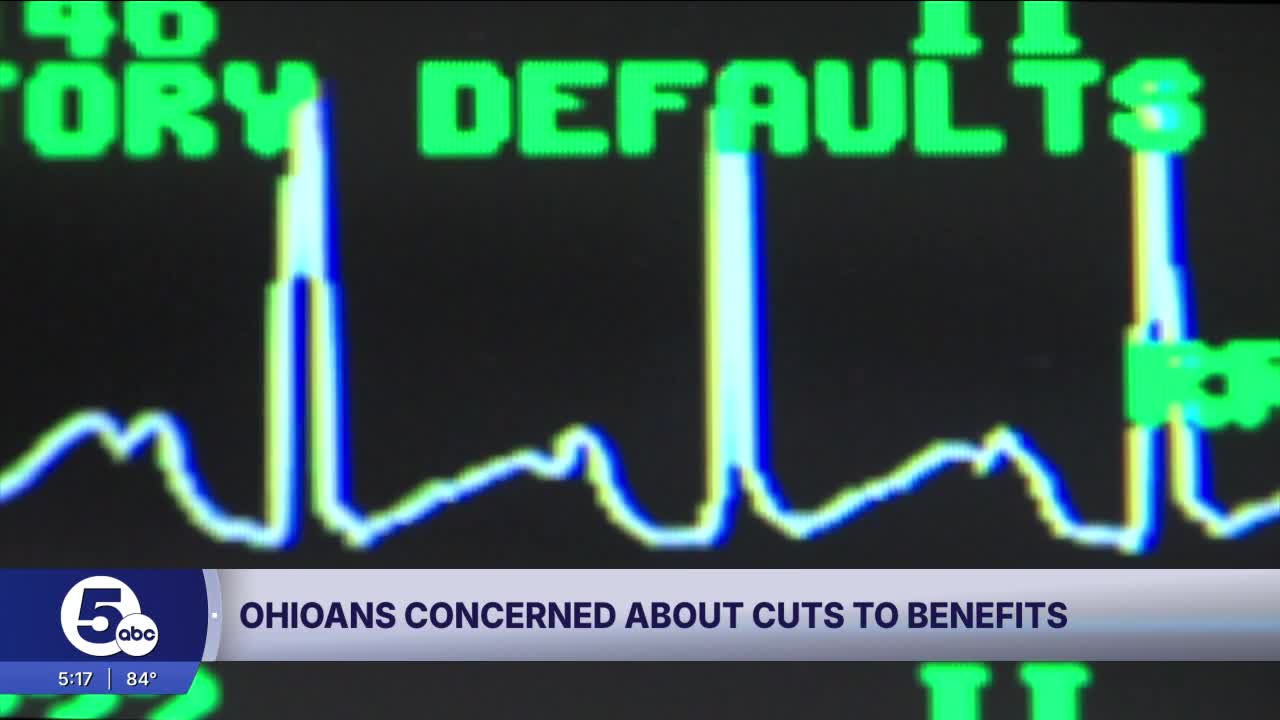COLUMBUS, Ohio — Ohioans continue to raise concerns that they will lose their health care access or food assistance benefits now that Congress's massive spending bill has been signed into law.
For one woman, Medicaid is the reason she says she is alive.
From doctor offices, to food banks, to being unhoused for two years, Clevelander Autumn La Riche said she has been trying to survive.
"Nobody wants to be stuck in poverty and disabled all the time," La Riche said.
Suffering from multiple chronic illnesses that impact her mobility and pain, she had to leave her job as an educator, relying on services like Medicaid. Right now, she qualifies for disability but fears that changes to the program due to what the GOP calls the "Big Beautiful Bill" will cause her and people like her to suffer.
"If I don't have healthcare, how am I ever gonna get better and return to work?" she said.
By mid-July, La Riche said she had been calling the offices of Sen. Bernie Moreno and Sen. Jon Husted about her concerns each week — for months. She never got to talk to anyone, at least nothing more than an automated message, she said.
"So after not hearing from them, you called us," I said.
"Yes," she replied. "I can't lose my services because I don't know what I would do."
Medicaid funding has been cut, and there are additional work and reporting requirements. Now, most able-bodied individuals ages 19 to 64 would need to work at least 80 hours per month.
Republicans like Vice President JD Vance say that this will bring down spending:
RELATED: JD Vance touts Trump's Big Beautiful Bill at Canton steel plant
"The best way to protect Medicaid is to ensure only the needy get access to Medicaid," the VP said Monday at an event in Canton.
There were also major changes to the work requirement exemptions for food stamps, SNAP — eliminating veterans and people facing homelessness from the exceptions list. The bill also increases the work requirements for the elderly. It raises the age for work requirements up to 64, and changes exemptions for parents to only those with children under 14.
The GOP says these types of governmental service changes are all to make the systems work more efficiently. "If you're looking for work, we're gonna help you look for work," Vance said.
Dylan Armstrong with nonpartisan Center for Community Solutions shared one impact that the new reporting aspect could have.
"By adding additional paperwork and additional bureaucracy, it will make it more difficult for individuals to either receive benefits or continue to receive benefits," Armstrong said.
The paperwork struggle is real for La Riche, who lost her SNAP benefits when she faced homelessness. Still, her top worry is her medical care.
I asked Vice President Vance about the cuts — to people who want to work but physically can’t.
"What do you say to those hundreds of thousands of Ohioans that say they will have no health insurance?
"Well, what I'd say to those Ohioans is one, don't believe every false media report that you've heard because our explicit goal in the Trump administration is to protect people's health care so long as they're working hard, playing by the rules... What I'd say to people is 'If you're looking for work, we're gonna help you look for work,'" Vance responded.
Watch the entire exchange:
After we reached out to the offices of both Ohio senators, La Riche said they called her back.
“Assisting Ohioans in need is Senator Moreno’s top priority. While the Senate has been dealing with an exceptionally high volume of calls, our office is committed to responding to each and every Ohioan in need of assistance and working through all requests as quickly as possible," said Moreno's spokesperson Reagan McCarthy said in a statement. "It’s a shame Democrat dark money groups have decided their petty political projects are more important than the needs of our constituents.”
La Riche said she told them this message: "You have no idea what is too much or not enough, if you have never lived with chronic illness, if you have never fought the disability system, if you have never had to fight for resources just to survive and live one day."
Ohioans have been reaching out to share concerns about their health insurance or food assistance needs, with others reaching out to talk about the impact the bill will have on them positively. Email Morgan.Trau@wews.com to share your story.
Follow WEWS statehouse reporter Morgan Trau on Twitter and Facebook.






